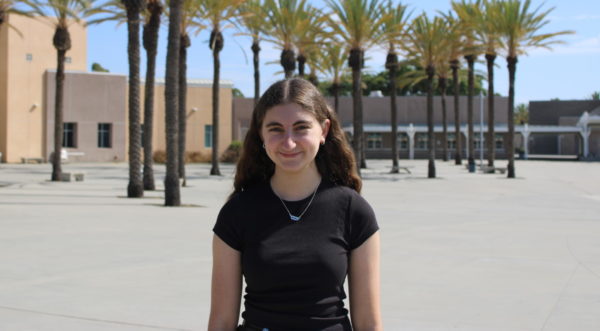School on Jewish holidays defies district commitment to inclusivity
October 8, 2021
No one should ever have to choose between religion and school, yet this is what Jewish students throughout the district must deal with every year.
For example, two of the most important holidays in Judaism are Rosh Hashanah, the Jewish New Year, and Yom Kippur, the Day of Atonement. These holidays take place in the fall and usually occur during the first month or two of school. In my ten years as a PUSD student, I have never had those days off.
Though I am allowed to miss school on Rosh Hashanah and Yom Kippur without being purposely penalized, I, like other Jewish students, face indirect consequences, especially since we deal with all of the problems that arise from missing days of school. Each year, we are forced to make a very difficult decision: practice our religion in the way we wish to, or practice in the way the district seems to tell us we should. By holding school, and worse, important events, on major Jewish holidays, the district discourages Jewish students from attending religious services.
Though to me my religion is more important, I often sacrifice it to ensure that I succeed in school. Especially because Rosh Hashanah and Yom Kippur fall within the first few months of school, I worry about making a bad impression on my teachers and struggling to catch up. Not having school on Jewish holidays would prevent this issue.
Some people argue that having these two days off from school will disrupt the learning flow, but having two days off from school is not nearly as much of a disruption as a two-week-long winter break.
Worse than having school on Rosh Hashanah and Yom Kippur, important events have been scheduled on these days in the past such as Picture Day in elementary school, standardized testing, and field trips. I’ve often needed to make up what I missed in substandard circumstances and spent holidays emailing teachers, trying to figure out what I was missing.
There is more to Rosh Hashanah and Yom Kippur than just religious services. They are a time for celebration and reflection with family and friends.
The main significance of the holiday Yom Kippur is its focus on religion, which is difficult to do when I am worrying about studying for a test I have the next day, or making up classwork. If we didn’t have school on Yom Kippur, Jewish students would be able to fully focus on the religious importance of the holiday.
School districts are required to have 180 instructional days each school year. Because of this limit, PUSD isn’t able to give days off from school for every holiday for every religion, and I recognize that. But, it is definitely possible to have school off for Rosh Hashanah and Yom Kippur, which would only mean two additional days of break.
The two largest school districts in the nation, Los Angeles Unified School District and New York City public school district both don’t have school on these important religious holidays. If these large school districts can re-work their schedules to accommodate having school off for Jewish holidays, then I believe PUSD can work on changing our schedule as well.
Some districts, such as Culver City Unified School District, don’t specify that school is off for a holiday, and instead call the days off “fall recesses.” This eliminates the argument that the district is “forcing” religion onto students.
PUSD prioritizes inclusivity, and this is definitely something that has improved over the past few years with the implementation of the Racial Equity and Inclusion Plan. But despite these efforts, there is no recognition of all important Jewish holidays.
The district is working very hard to give equal opportunities to students from all backgrounds, but words aren’t enough. Taking action and not holding school on these major Jewish holidays would further solidify PUSD’s emphasis on inclusivity.
It is definitely possible to have school off for Rosh Hashanah and Yom Kippur, and this would show a great amount of respect towards Jewish students and faculty members in the district. It is important that the schedule is made in accordance with the population, instead of the population needing to conform to the schedule.


